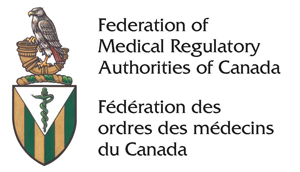View the following document in PDF format.
Download the PDF document |Télécharger le document en PDF
The shared position of the medical regulatory authorities of Canada is the following:
Final year medical students who have completed their undergraduate training but not yet taken the Medical Council of Canada Qualifying Examination Part One will still be able to obtain an educational license to enter residency training in Canada on 1 July 2020, provided that:
a. they have an offer of a residency position in Canada;
b. the medical regulatory authority has received confirmation of graduation from the Dean’s Office of a Canadian medical school; and
c. they understand that they must take the MCC QE Part One at the earliest opportunity.
Graduating residents will be eligible for a provisional / temporary / restricted license in a Canadian province, provided that:
a. they have confirmation that they completed their postgraduate training program in Canada;
b. they have received notice of eligibility to take the certification exam (from the College of Family Physicians of Canada or the Royal College of Physicians and Surgeons of Canada); and
c. they understand that they must take the certification exam at the earliest opportunity.
For specific information on any other requirements or conditions, all trainees are invited to consult the website of the relevant medical regulatory authority or contact the MRA: www.fmrac.ca/members
Les ordres des médecins du Canada partagent la position suivante :
Les étudiants en médecine de dernière année qui ont terminé leur formation prédoctorale, mais qui n’ont pas encore passé l’examen d’aptitude du Conseil médical du Canada, partieI, pourront toujours obtenir un permis d’études pour suivre une formation en résidence au Canada le 1er juillet 2020, à condition :
a. qu’ils aient reçu une offre d’un programme de résidence au Canada;
b. que l’ordre des médecins ait reçu la confirmation de l’obtention de leur diplôme du bureau du doyen d’une faculté de médecine canadienne; et
c. qu’ils comprennent qu’ils doivent passer l’EACMC, partieI, le plus tôt possible.
Les résidents diplômés pourront obtenir un permis provisoire / temporaire / restrictif dans une province canadienne, à condition :
a. d’avoir reçu la confirmation qu’ils ont complété leur programme de formation postdoctorale au Canada;
b. d’avoir reçu un avis d’admissibilité à l’examen de certification (du Collège des médecins de famille du Canada ou du Collège royal des médecins et chirurgiens du Canada);
c. d’avoir compris qu’ils doivent passer l’examen de certification le plus tôt possible.
Pour obtenir des précisions sur toute autre exigence ou condition, nous invitons tous les stagiaires à consulter le site Web de l’ordre des médecins compétent ou à communiquer avec la FOMC : www.fmrac.ca/members
